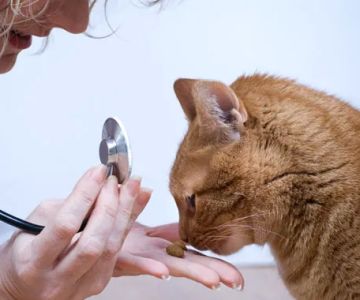Can a Felon Be a Veterinarian in Texas?
Becoming a veterinarian is a dream for many who have a passion for animals and a desire to make a difference in their health and well-being. However, for some, a past criminal conviction can raise questions about their ability to pursue a career in this field. If you are a felon and wondering whether you can become a veterinarian in Texas, you’re not alone. Many people in similar situations seek to understand the legal and professional barriers, as well as the opportunities that may be available to them. In this article, we’ll explore whether it’s possible for a felon to become a veterinarian in Texas, the licensing requirements, and the steps to overcome potential challenges.
1. Understanding the Path to Becoming a Veterinarian in Texas
Before delving into the specific challenges felons may face, it’s important to understand the general requirements to become a veterinarian in Texas. The process involves several steps, including:
- Obtaining a bachelor's degree, typically in a science-related field such as biology or chemistry.
- Attending an accredited veterinary school to earn a Doctor of Veterinary Medicine (DVM) degree, which usually takes four years.
- Passing the North American Veterinary Licensing Exam (NAVLE) and any state-specific exams, including those for Texas.
- Applying for a veterinary license through the Texas Board of Veterinary Medical Examiners (TBVME).
Now that we’ve outlined the typical path to becoming a veterinarian, let’s explore whether a felony conviction can stand in the way of achieving this goal in Texas.
2. The Impact of a Felony on Becoming a Veterinarian
In Texas, like in many other states, applicants for a veterinary license are subject to a background check as part of the licensing process. This background check is conducted by the Texas Board of Veterinary Medical Examiners (TBVME) and looks into an individual’s criminal history. A felony conviction does not automatically disqualify someone from obtaining a veterinary license, but it can make the process more complex. The key issue is whether the conviction is relevant to the practice of veterinary medicine.
In general, Texas law allows felons to become licensed professionals in certain fields, including veterinary medicine, provided they meet the necessary qualifications and demonstrate that their past criminal behavior does not reflect negatively on their ability to perform their duties as a veterinarian. However, the board has the authority to deny or delay a license based on the nature of the crime and how much time has passed since the conviction.
3. The Texas Veterinary Licensing Process for Felons
If you are a felon and wish to become a veterinarian in Texas, you will need to apply for licensure through the TBVME. When applying, you must disclose your criminal history, including any felony convictions. The TBVME will then evaluate your case based on several factors:
- The nature of the felony conviction.
- How much time has passed since the conviction.
- Any evidence of rehabilitation or efforts to atone for past mistakes.
- Letters of recommendation or support from employers, community members, or others who can speak to your character.
The evaluation process can vary depending on the specifics of the conviction. For instance, a felony conviction for a crime unrelated to animal care may not be as concerning as one that involves abuse or neglect. The board also considers whether the individual has completed any required rehabilitation or treatment programs. Ultimately, the goal of the TBVME is to ensure that anyone granted a veterinary license is capable of providing safe and effective care for animals.
4. Challenges and Opportunities for Felons Pursuing a Veterinary Career
While it’s not impossible for a felon to become a veterinarian in Texas, there are unique challenges that may arise. For example, you may face delays in the licensure process as the board evaluates your criminal history. In some cases, you may be required to provide additional documentation, attend hearings, or undergo interviews to demonstrate your qualifications and character. Furthermore, felons may encounter difficulties in securing internships or employment at certain veterinary practices, especially if they have a history of offenses related to dishonesty or animal cruelty.
However, there are also opportunities available. Many veterinary schools and employers in the field are open to giving individuals with criminal records a second chance, particularly if they show a commitment to turning their lives around. Completing rehabilitation programs, obtaining letters of reference from respected professionals, and maintaining a clean record can go a long way in proving that you are dedicated to a positive future in veterinary medicine.
5. What Felons Can Do to Improve Their Chances of Becoming a Veterinarian
If you are a felon interested in pursuing a career in veterinary medicine, there are steps you can take to improve your chances of success. Here are some strategies to consider:
- Complete any required rehabilitation or treatment programs to demonstrate your commitment to personal growth.
- Obtain letters of recommendation from people who can vouch for your character and work ethic.
- Volunteer or work in animal care settings to gain experience and build your reputation in the industry.
- Seek legal advice or consult with an attorney who specializes in licensing issues to navigate the process.
By demonstrating your commitment to making positive changes in your life and your ability to perform the responsibilities of a veterinarian, you can increase your chances of overcoming any obstacles that may arise due to your criminal record.
6. The Importance of Persistence in the Pursuit of a Veterinary Career
While the path to becoming a veterinarian as a felon may be more difficult, it’s important to remember that many people have successfully overcome similar challenges. With persistence, dedication, and a focus on rehabilitation, you can still achieve your dream of becoming a veterinarian. In fact, your past experiences may even give you a unique perspective and a deeper understanding of the importance of second chances, which could ultimately benefit the animals and people you serve.
Conclusion: Moving Forward with Your Veterinary Dreams
In conclusion, while a felony conviction may present certain challenges when pursuing a career in veterinary medicine in Texas, it does not automatically disqualify you from obtaining a veterinary license. The key to success is demonstrating that you have learned from your past, completed any necessary rehabilitation, and are fully capable of providing quality care for animals. By navigating the licensing process carefully, obtaining the necessary support, and showing your commitment to the profession, you can still fulfill your dream of becoming a veterinarian, even with a criminal record.











